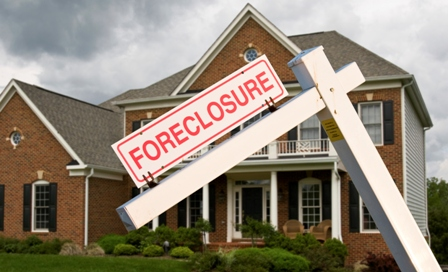 As an HOA Board member you may be faced with the task of having to make the decision to foreclose on homes in your association. We’ve all been challenged by the financial climate these last few years and it is going to take some time to bounce back. Therefore, HOA foreclosures are inevitable.
As an HOA Board member you may be faced with the task of having to make the decision to foreclose on homes in your association. We’ve all been challenged by the financial climate these last few years and it is going to take some time to bounce back. Therefore, HOA foreclosures are inevitable.
There are two main reasons for HOA foreclosures:
- Homeowners in the association are defaulting on their mortgage payments
- Homeowners are neglecting to pay their HOA fees
The latter reason is especially noteworthy because many people don’t realize that even if they’re current on their mortgage payments, they could lose their homes because they are overdue on their HOA fees. While it depends on state laws and the governing documents in the association, a HOA Board could choose to pursue foreclose if members haven’t paid their HOA fees, which means the homeowner could lose their home over just a few hundred or thousand dollars.
If an HOA Board chooses to pursue foreclosure on a home in the HOA, they should be aware of some possible defenses that the homeowner could come back with, and prepare as best they can.
The following are defenses a homeowner could use against the Board in the foreclosure process.
The HOA is Not Authorized
The governing documents in your association should contain the information about how and when an HOA may pursue foreclosure. Be sure to consult your CC&Rs before electing to take out a lien on a home or start the foreclosure process, otherwise the homeowner could use the defense that the governing documents don’t authorize a HOA foreclosure.
Failure to Follow the Law
In California, the amount of delinquent HOA fees must be more than $1,800 or must be 12 months old before an HOA Board can even initiate the foreclosure process. If the process is started prematurely then the HOA foreclosure can be dismissed because the homeowner uses the defense that the HOA didn’t adhere to state statutory requirements.
Incorrect Accounting
If a Board decides to pursue foreclosure on a home in the HOA on the basis of unpaid HOA fees, it’s crucial to make sure all accounting is in order and the unpaid fees have been calculated correctly. If a homeowner believes there are errors, the HOA can be required to show documentation on how the amount of unpaid fees was calculated.
Misapplication of Payments
The CC&Rs in many associations state that any payments made to the HOA must be applied to unpaid HOA fees first before any other type of debt, such as fines. If the HOA did apply payments to a category other than the unpaid HOA fees, the foreclosure may be deemed invalid.
Incorrectly Recording the Lien
In basic terms, a lien is a legal claim or hold on a piece of property that can prevent the property from being sold until a debt is paid. Usually an HOA Board will take a lien on the property because of unpaid assessments before going the foreclosure route. The lien must be publicly recorded. Otherwise, if the Board does begin the foreclosure process, the homeowner could provide a defense to the foreclosure that the lien wasn’t even properly recorded.
Right of Redemption
The Board should be aware that there is a specific time period given to homeowners following an HOA foreclosure when the homeowner can buy back or “redeem” the property. In California, when the foreclosure is a nonjudicial process (meaning it’s not going through the courts) the homeowner has a 90-day right of redemption after the sale.
If your HOA Board is facing the reality of pursuing foreclosure on homes in your association, we hope this information was helpful in preparing for possible defenses from homeowners.










